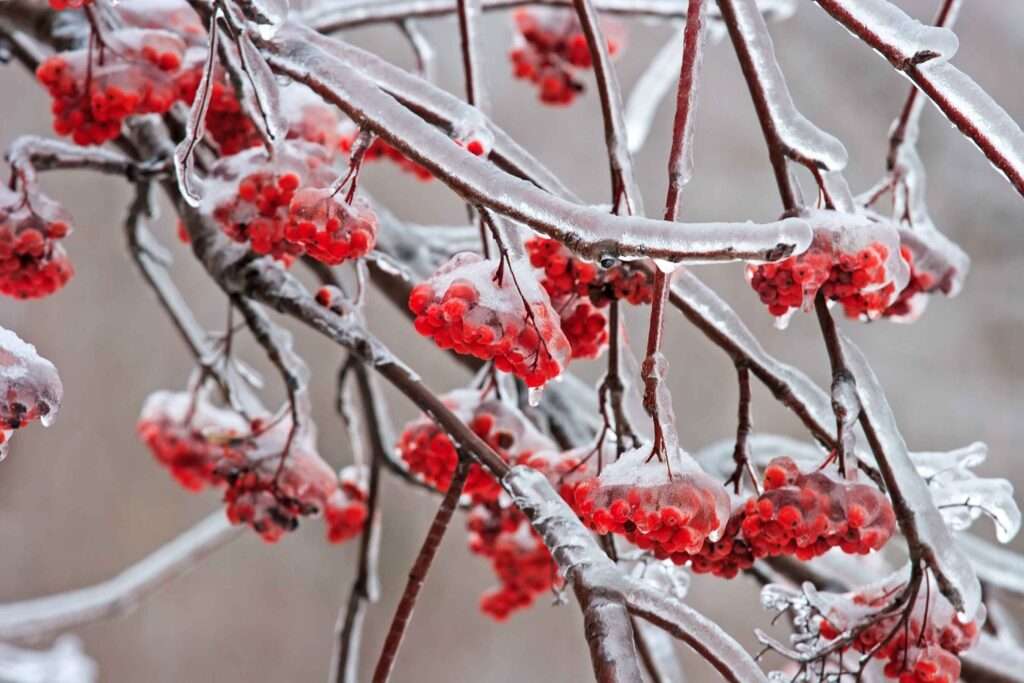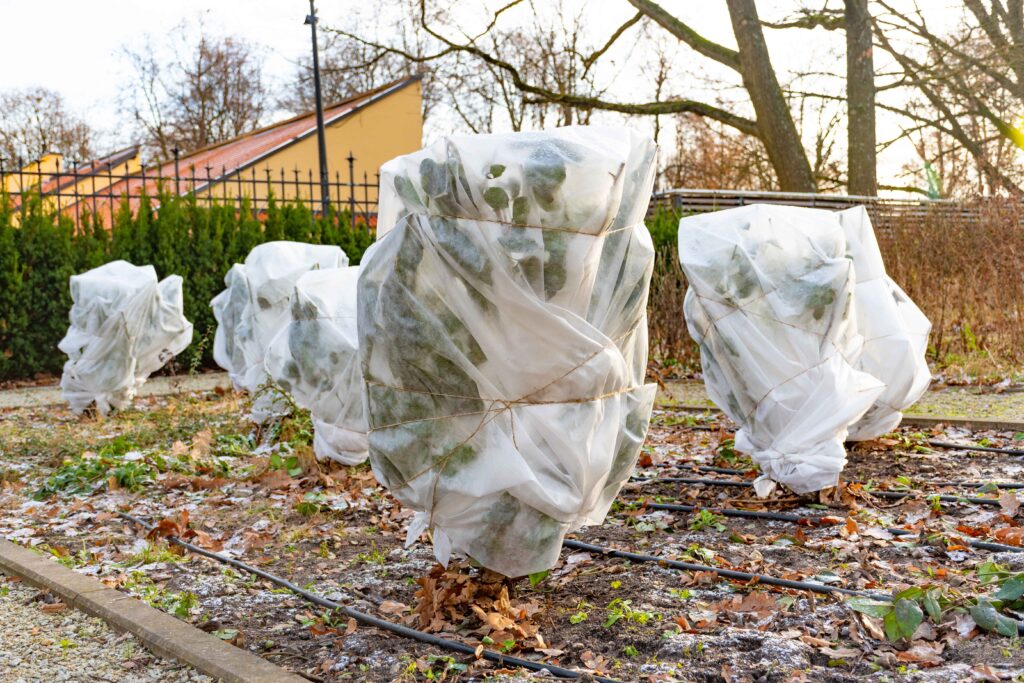
When the weather begins to turn cold, it’s time to protect your plants from a freeze. While most gardeners know how to shelter plants during a freeze, it’s best to arm yourself with as much knowledge as possible. It could be a matter of [plant] life or death!
Know the lowest temps your veggies can handle and follow these tips:
The good news is – you can reduce your watering during cool months. However, don’t let the soil completely dry out. Dry plants are vulnerable. Therefore, water them consistently before cold snaps arrive. Further, check to see if you need more mulch; three inches is optimal. Try our Premium Colored Mulch; while everyone has their favorite color, we find the brown blends nicely during the winter months.
Moreover, plants should maintain a healthy moisture level in the soil regardless of the season. Your plants won’t do well if you over or under water them… especially when you live in an area with lots of temperature changes.

PROVIDE COVERAGE
Plants that are in pots or containers suffer more than plants in the ground, even if their roots are covered with mulch. In fact, there is about a 10-degree variance. So, cover these plants with frost cloths, old bed sheets, burlap, etc. Above all, do not use plastic or plastic-lined material.
GIVE THEM SHELTER
If you can, bring your potted plants inside to protect them from a freeze. Whether this means in your kitchen, garage or other sheltered area, provide extra protection. Further, if you have a greenhouse, be sure you have a backup power source.
Given enough of a warning, you’ll have more time to take the proper precautions when moving potted plants indoors. From relocating plants at night to moving them before temps dip below 45 degrees, every precaution helps keep your plants healthy and thriving.
CUT THE SALT
To reduce chances of slipping, have you considered using salt to keep your walking and driving areas gritty? Don’t. Salt products can be bad for your plants, water runoff and environment.
In many areas, primarily concrete sand is used and is non-polluting. Also, we recommend lava or granite sand. They’re non-toxic and good for garden soil as they wash off paving and into our lawns. Taking the proper precautions and using the right products can help you keep herbs and veggies growing throughout the colder months.
Get started on these steps while the weather is still mild — and if you haven’t already, make sure you’re also caring for your tools and keeping them safe from the icy cold.
For these and other tips about protecting your landscape, contact a Living Earth® expert.